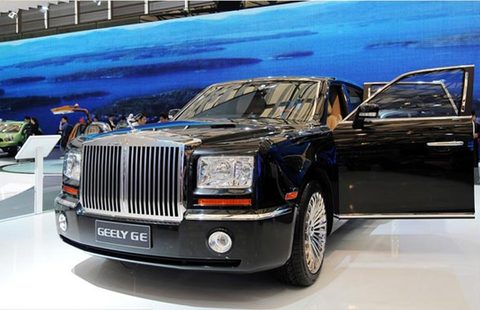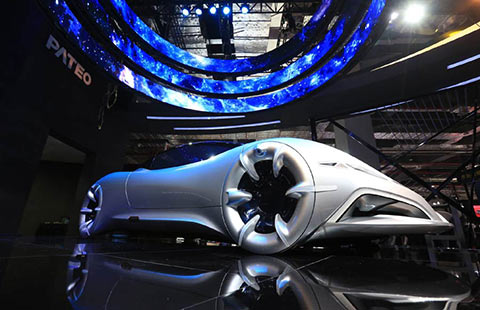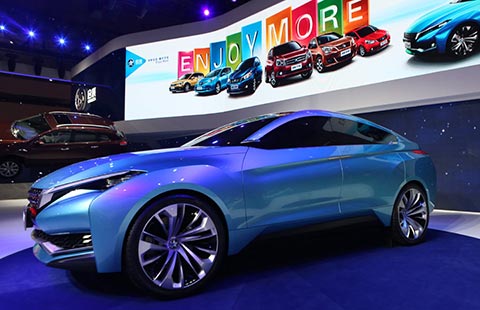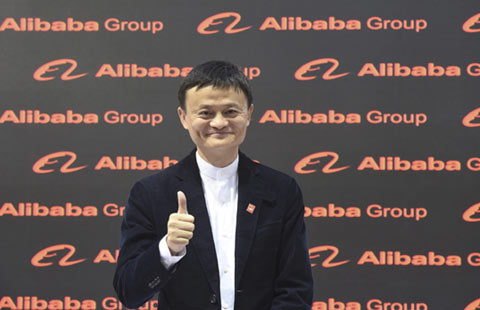New price war among Internet retailers
By He Wei in Shanghai (China Daily) Updated: 2012-05-28 09:29
|
 |
|
"Quality,competitive price and express delivery" is the wording by 360buy.com on an advertising billboard in Shanghai. Chinese e-commerce sites have started a new price war according to reports in the Chinese media that may push some of these businesses to the verge of bankruptcy. [Photo / China Daily] |
A new price war has broken out as cash-abundant e-commerce sites, enjoying a round of fresh financing from private equity firms, seek a share of an explosion in online shopping.
On 51buy.com, or Yixun, flashy advertisements on the homepage tempt consumers by offering 99 yuan ($15.70) cell phones and 50 percent off on small appliances among other incentives.
Recently, up to 500 million yuan was injected into the website following a new investment by Internet giant Tencent Holdings Ltd, according to Bu Guangqi, chief executive officer of Yixun. After the deal, Tencent became the controlling stakeholder of the company.
Yixun used to serve customers primarily in East China regions but it is now looking to march towards the country's northern parts in the second half of 2012, said Hong Mingci, the company's chief strategy officer.
"Logistics and sufficient inventory should go in hand with proper promotions. We are eyeing an integration of resources to give us the edge in the highly competitive northern China market," he said on the sidelines of the 2012 E-commerce Development Forum in Shenzhen.
Likewise, the e-commerce site of Suning Appliance Co, China's largest electrical appliance retailer, launched its own discounts, extending a wide range of offers from computers and air conditioners to bedding.
In April, Suning broke the ground for its largest e-commerce headquarters. The initial investment amounted to 1 billion yuan and the site is scheduled to enter service in 2014.
The facility, covering an area of 200,000 square meters in Nanjing, will sell daily necessities, clocks, musical instruments and other goods in addition to electrical appliances, according to chairman Zhang Jindong.
To support this rapid development, Suning plans to add five major procurement and sales centers. The company said it aims to expand online sales by 50 percent annually over the next 10 years.
"Our 2012 target for online sales is 30 billion yuan," Zhang said. "While we plan to add traditional sales channels, we're still paying attention to our online business. We believe the two can develop cooperatively."
The rumored initial public offering of 360buy.com, or Jingdong Mall, may be one reason to intensify the competition. While the company in April downplayed speculation it was close to applying for a listing in the United States soon, it enjoyed robust growth in the past months.
Jingdong claims to be the biggest 3C online retailer of the business-to-customer (B2C) market in China. 3C stands for computer, communication and consumer electronics.
It accrued more than 37 percent of China's B2C market in the first quarter of 2012, said vice-president Zhang Shouchuan. That almost doubled the figure in the third quarter of last year, when Jingdong only accounted for 18.6 percent, according to data compiled by iResearch.
Despite the generous discounts offered by merchants, online buyers found they are getting discounted services as well.
"They used to be quick and punctual," complained a regular customer at Yixun, who would only give his name as Xu.
Xu was intrigued by the site's anniversary promotion from May 15 to May 20, and spent 4,000 yuan on a computer. The price was about 5 percent lower than on its local competitor Jingdong, he told China Daily.
However the anticipated goods were not delivered in the time he requested because of "the paramount logistics pressure fueled by the promotion", he quoted customer service representatives as saying, forcing him to wait anxiously. "And they act really slowly," Xu added.
The gain in online sales in the first quarter of 2012 easily beat figures last year to reach 218 billion yuan, with business-to-customer sales accounting for 37.4 percent, according to Analysys International, a consultancy on Internet studies.
hewei@chinadaily.com.cn
- Alibaba opens the page on
- Dalian looks for place under the FTZ sun
- New cars dazzle 2015 Shanghai Auto Show
- China employment growth slows in new precedent
- ICBC topples Wells Fargo as world's most valuable bank
- Xi'an seeking to join trade club
- Riskiest bonds flagged by Haitong after Tianwei default
- Investment by Hormel to grow as meat demand rises

















